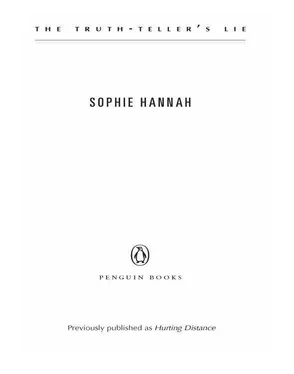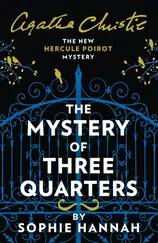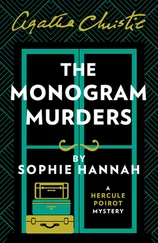Charlie didn’t love Graham. She’d had to struggle to keep Simon out of her mind, for Christ’s sake, even when they were having sex. So it was hardly the romance of the century. If Graham had phoned her and suggested calling it a day, that would have been fine. It wasn’t losing him that stung; it was being made a fool of. She felt utterly humiliated, more so when she thought that, by now, Steph must have realised who the mysterious Scottish caller had been. She and Graham were probably having a hearty laugh at her expense at this very moment.
It was too similar to what Simon had done to her, that was what Charlie couldn’t take. Was everyone’s life full of such indignities, or was it just hers?
She wanted to make Graham pay in some way, but if she did or said anything at all, he would know she cared. To respond to his humiliation of her would be to acknowledge it, and Charlie was damned if she’d give him the satisfaction, him or Steph.
Still leaning against the wall outside the CID room, she dialled Olivia’s number. Please, please answer, she thought, trying to transmit the words telepathically to her sister.
Liv was out. Her answerphone message had changed. It still said, ‘This is Olivia Zailer. I can’t come to the phone at the moment, so you’ll have to leave a message after the beep,’ but a new bit had been added: ‘I’m particularly keen to receive messages from anyone who wants to apologise profusely to me. Any such calls will definitely be returned.’ The tone was acerbic, but it didn’t detract from the reassuring message. Two tears slid down Charlie’s cheeks and she wiped them away quickly.
‘Here’s that message you’ve been waiting for,’ she said to her sister’s answerphone. ‘I apologise profusely and more than profusely. I’m an enormous pillock and a dickhead, and I deserve to be keel-hauled. Although I don’t think people are keel-hauled anymore—’ She stopped abruptly, realising she sounded like Graham. It was the sort of joke he’d make: self-conscious, protracted. ‘Ring me tonight, please. Once again, my head and life are totally fucked up—sorry, I know it’s getting a bit tedious—and I might have to throw myself under a train if you don’t come to my rescue. If you’re free tonight and can be arsed slogging up to Spilling, please, please come round. I’ll leave the key in the usual place.’
‘Sarge, for fuck’s sake!’ Gibbs had materialised in the corridor.
Charlie whirled round to face him. ‘If I ever catch you eavesdropping on a call of mine again, I’ll cut your bollocks off with a steak knife, have you got that?’
‘I wasn’t—’
‘And don’t fucking swear at me, and don’t fucking order me around! Clear?’
Gibbs nodded, red in the face.
‘Right.’ Charlie took a deep breath. ‘Good. What have you got on Haworth, then?’
‘You’re going to love this.’ Gibbs looked, for the first time in weeks, as if he wouldn’t mind delivering some good news. Charlie would have put money on a deterioration in his attitude, not so swift an improvement. Maybe she ought to give him more regular tongue-lashings. ‘What Juliet Haworth told you and Waterhouse was true: shag-happy mum with a phone-sex business, dad heavily involved in far-right politics, one older brother, parents divorced, Giggleswick School—’
‘What about the surname?’ Charlie interrupted him.
Gibbs nodded. ‘That’s the reason we weren’t finding the background on him: he wasn’t born Robert Haworth. He changed his name.’
‘When?’
‘This is interesting too. Three weeks after he met Juliet in the video shop. But I’ve spoken to her parents, the Heslehursts, and they always knew him as Robert Haworth. That’s who he said he was.’
‘So he’d been planning the change for a while,’ Charlie deduced aloud. ‘And this was all long before he raped Prue Kelvey. Did he have a criminal record he wanted to lose?’
‘Nope. Not a sausage. Clean as they come.’
‘Why the name change, then?’ said Charlie thoughtfully. ‘Because he idolised Branwell Brontë?’
‘He grew up on Haworth Road. Number fifty-two. His new surname was his old road name. Anyway . . . criminal record or no criminal record, he must have had something to hide.’
‘Why won’t he fucking wake up so that we can interview him?’ Charlie snapped.
‘He might, Sarge.’
‘He won’t. He’s still having epileptic fits. Every time I speak to the ward sister, she tells me something new and bad: cerebellar tonsillar herniation, tonsillar haemorrhagic necrosis. Layman’s terms? He’s on his way out.’ She sighed. ‘So he was born Robert? You said “his new surname”.’
‘Yeah,’ said Gibbs. ‘Born on the ninth of August 1965. Robert Arthur Angilley. Unusual name, isn’t it? Sarge? What’s—’
Gibbs stared after her as she ran along the corridor and through the double doors that led to reception. Should he follow her? After a few seconds, he decided he ought to. He hadn’t liked the way she’d looked before she ran: white-faced. Scared, almost. What the fuck had he said? Perhaps it wasn’t anything to do with him. He’d overheard the tail end of her phone call, and she’d said something about her head being fucked up.
He felt a bit low for having vented his frustration as much on the sarge as on Waterhouse and Sellers. Sellers, especially. He was the one who really deserved it. The sarge was a woman; women’s minds worked differently. He ought to have let her off the hook.
Gibbs ran through reception and out on to the steps, but he was too late. Charlie was already in her car, pulling out of the car park on to the road.
Part III
22
Saturday, April 8
IN FILMS, FOLLOWING someone in a car is always made to look difficult. If the person ahead knows he or she is being pursued, there are sudden turns down hidden alleyways, sideways lurches on to fields, brief flights through air that end with metallic crashes and fires. If the prey is oblivious, there are other hurdles: traffic lights that change at the worst moment, large vans that overtake and block the follower’s view.
I’ve been lucky so far. None of these things has happened to me. I am in my car, following Sergeant Zailer in her silver Audi. I passed her as I was driving towards the police station, on my way to see her. She was zooming off in the opposite direction, apparently in a hurry. I did a three-point turn in the middle of the street, blocking the traffic on both sides, and set off after her.
I don’t think Charlie Zailer has seen me, and I’ve been right behind her all the way out of the town centre. Spilling isn’t the sort of place where other drivers cut in front of you. Most people are probably chugging along to some local antique or craft fair. The only person on the road with a sense of urgency is Sergeant Zailer. And me, as I can’t risk losing her. I am careful not to let a space open between my car and hers. If she overtakes somebody, I glide past in her wake.
At the second roundabout after the High Street ends, she takes the first left turn. This is the road that leads to Silsford. It goes on for miles, winding through countryside, dark like a tunnel because of the overhanging trees on both sides. I am fiddling with the radio, distracted, searching for loud music so that I won’t have to be alone with my thoughts, when she turns again. Right, this time. I do the same. We’re on a small street of red-brick terraced houses, all of which are set back from the road, with tiny square yards at the front. Most of the houses look smart from the outside. Some have brightly coloured external paintwork: jade green, lilac, yellow.
Cars line both sides of the street, and there are few spaces. Sergeant Zailer parks unevenly about halfway down and gets out of her Audi. I catch a glimpse of her face and see that she has been crying. A lot. Instantly, I know that she is not here for any reason to do with work. This is where she lives; something’s wrong and she’s come home.
Читать дальше












